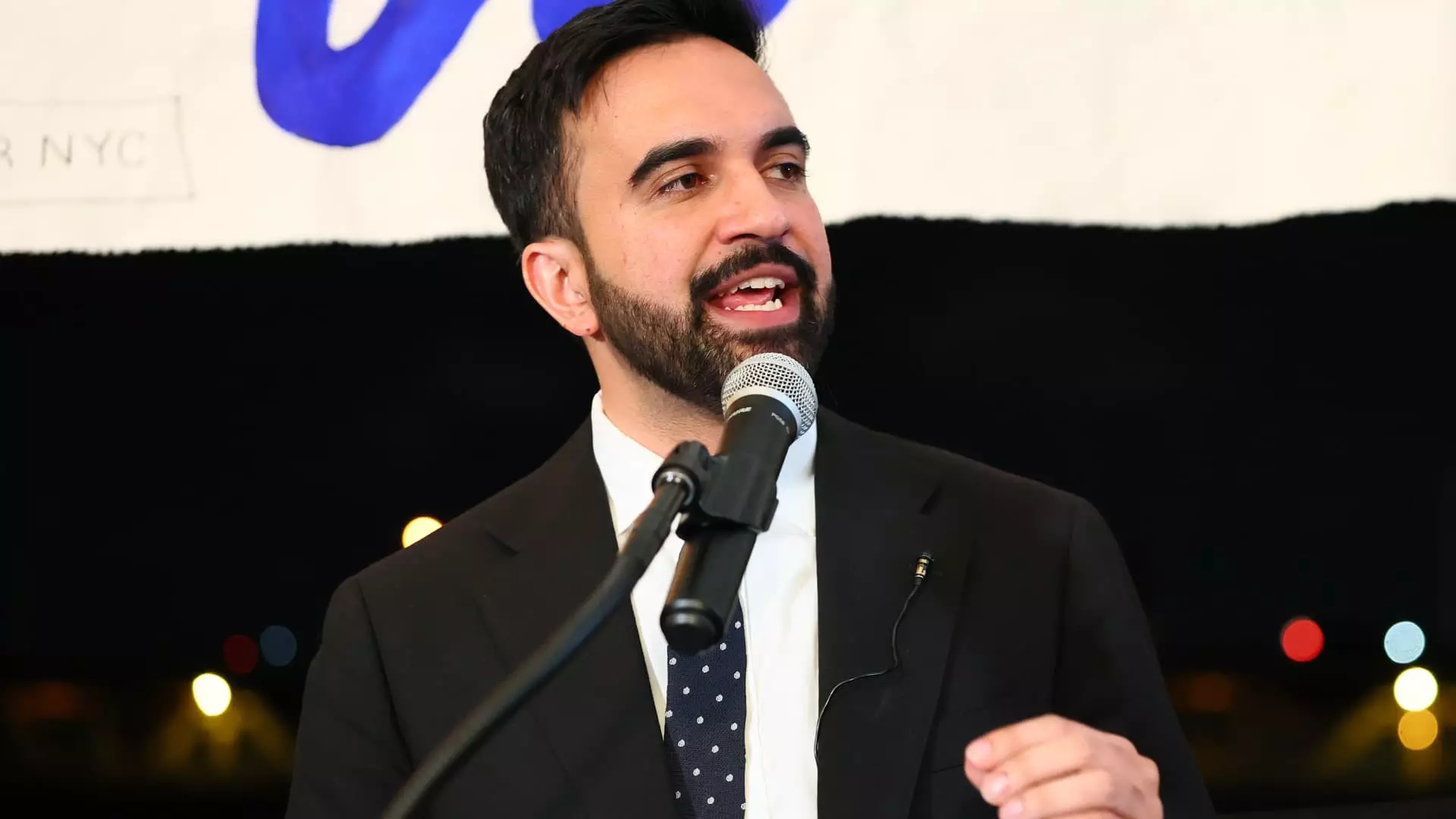When news broke about Zohran Mamdani’s apparent triumph in the New York City Democratic mayoral primary, it sent ripples through Wall Street, particularly affecting the shares of Flagstar Bank. This isn’t simply a case of typical electoral politics; it’s a confluence of local policy and big finance that could unravel the very fabric of the city’s real estate market. The anticipated 6% drop in Flagstar’s shares was not just a minor blip; it’s a warning signal, suggesting that investors are beginning to understand just how radical the implications of Mamdani’s campaign promises could be.
The Ripple Effects of Rent Control Politics
Mamdani’s promise to freeze rent increases in stabilized units is more than an act of political bravado; it’s a directive that could reverberate throughout New York’s multi-family rental sector. For a city that is already grappling with a housing crisis, pulling the brakes on rent increases might sound appealing to many, but the unintended consequences could be disastrous. The regulatory powers the mayor wields in appointing members to the rent oversight board mean that Mamdani is positioned to leverage policies that stay the hands of landlords, effectively stalling economic growth in this crucial sector.
Analysts have expressed various views on the potential fallout. Deutsche Bank analysts estimate that between $16 billion and $18 billion of Flagstar’s multi-family loan portfolio is at risk under new rent regulations, which could represent one-quarter of the bank’s total exposure. Yet, one must ponder: if we allow newly minted politicians to interfere in market dynamics unchallenged, are we, as a society, inviting disaster? Carefully balanced economic progress can’t simply be halted to placate short-term political goals.
The Financial Footprint of Political Decisions
As a former Treasury Secretary, Steven Mnuchin’s backing of Flagstar is not just about finance; it’s a bet on the kind of economic environment that the bank will inhabit. With Mamdani’s radical agenda, a portion of that investment is suddenly vulnerable, not just due to the risk of rent freezes but also because of Mamdani’s broader economic ideology. His call for higher corporate tax rates, while likely to be resisted at various governmental levels, still reflects a sentiment that could deter investment and stymie any growth.
Morgan Stanley and Barclays analysts are cautiously optimistic—some might argue, overly so—about the bank navigating these rough waters. However, while they project that a temporary freeze could be “manageable,” one cannot ignore the possibility of future repercussions. The impact of stifling rental income may not be immediately felt, but a long-term pause on rent increases could lead to stagnated revenue growth, ultimately pushing Flagstar to increase its loan loss reserves. This is not a sustainable strategy for any financial institution, especially not one that has already been thrust into the limelight by its recent rebranding efforts.
The Broader Implications for the Real Estate Sector
Furthermore, Mamdani’s governance doesn’t just isolate itself to one bank or even a sector; it poses existential questions for New York City real estate at large. With companies like SL Green Realty and Vornado Realty Trust already seeing their stock prices sink nearly 5%, it’s clear that investor sentiment is teetering on the edge. The interconnectedness of these businesses to broader economic conditions means that an unstable real estate market can lead to a cascading effect, impacting everything from employment opportunities to infrastructure development.
While Mamdani might passionately believe in his platform, one must argue whether his vision aligns with long-term growth and sustainability. The very principles that should guide municipal governance—balancing the needs of residents with economic realities—seem to be overshadowed by an eagerness to implement sweeping reforms without substantial consideration for unintended effects. If nothing else, Mamdani’s policies serve as a reminder that in political theater, the stakes are high, and the financial markets react not just to firm numbers, but to the very ethos of governance itself.
Mamdani’s anticipated challenge from Republican Curtis Sliwa and other independent candidates could provide a counterbalance, but as it stands, the alarm bells are ringing. A hallowed city that has thrived on the bedrock of property investment is now caught in the crossfire of a new, radical political approach. If this trend continues, we might witness a recalibration of investment strategies, with investors gravitating toward environments perceived as economically stable and reliable. The outcome of this mayoral race could dictate not just the future of rent in New York City, but the financial health of numerous stakeholders across the board.

